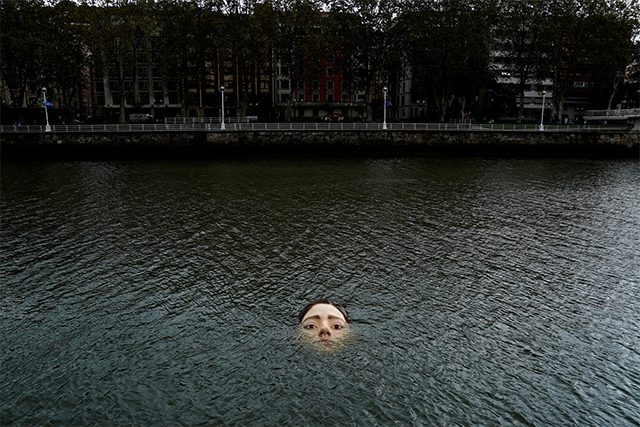
BILBAO — Staring impassively out from the murky waters of Bilbao’s River Nervion, the eerily lifelike face of a young girl drowning in the tide has been unsettling people in the Spanish city since she appeared unannounced last week.
Mexican hyperrealist artist Ruben Orozco created the enigmatic figure, entitled ‘Bihar’ (‘Tomorrow’ in Basque) for a campaign by the BBK Foundation – the charitable arm of Spanish lender Kutxabank – to encourage debate around sustainability.
The goal is for people to be aware that “their actions can sink us or keep us afloat”, the artist told Spanish news website Nius.
As the tides rise and fall, the 120 kg (264 lb) fibreglass figure is submerged and uncovered each day, which BBK said was a reflection on what could happen “if we continue to bet on unsustainable models” such as those that contribute to climate change.
Bilbao residents awoke to the installation last Thursday after it was taken by boat and lowered into the river near the city centre at the dead of night.
“At first it gave me a feeling of stress, when more of the face was out of the water, but now to me she communicates sadness, a lot of sadness,” said visitor Triana Gil.
“She doesn’t even look worried, it’s as if she is letting herself drown.”
Another onlooker, who gave her name as Maria, initially thought the sculpture was a memorial to a tragic past event.
“I learnt today that’s not what it’s about, but I think people can each give their own meaning to it,” she said.
‘Bihar’ is not the first Orozco work to surprise and move Bilbao.
Two years ago his life-size statue of a lone woman sitting on a park bench, ‘Invisible Soledad,’ sparked a debate about the isolated lives of the elderly. —Reporting and writing by Vincent West; Editing by Nathan Allen and Mike Collett-White



